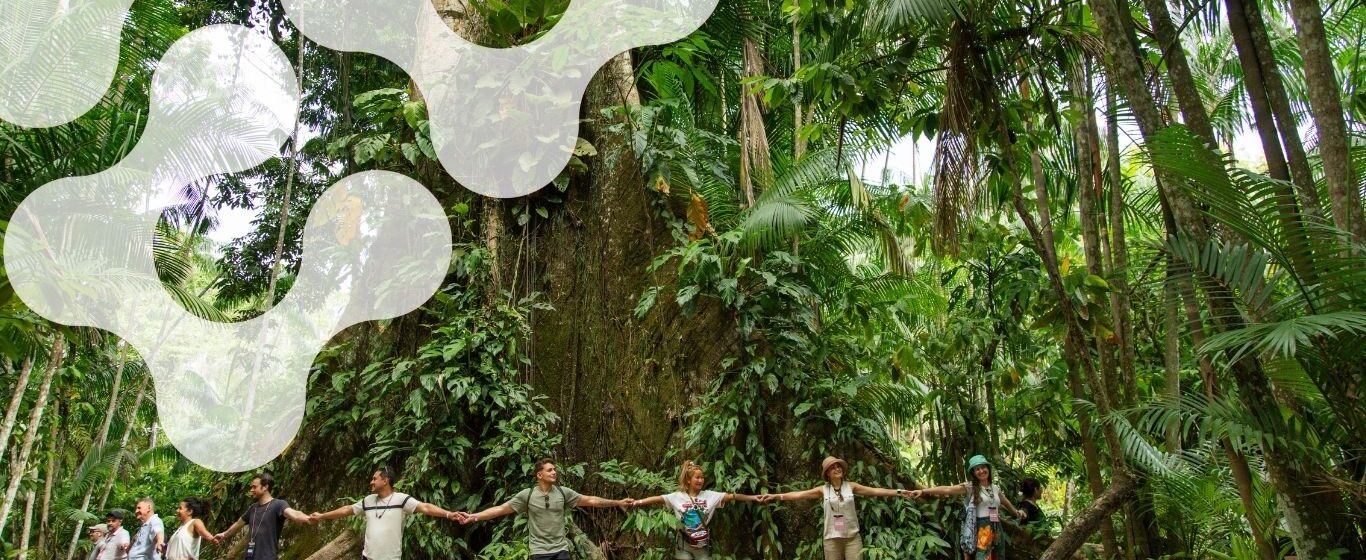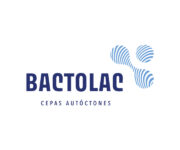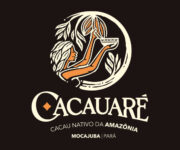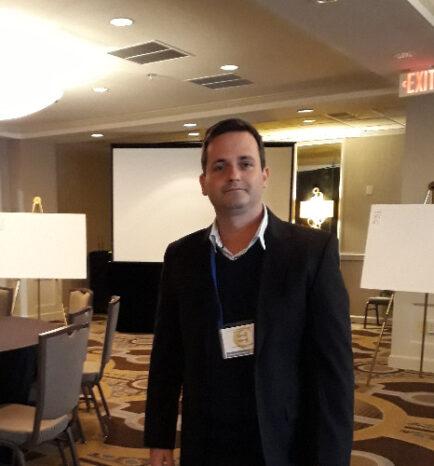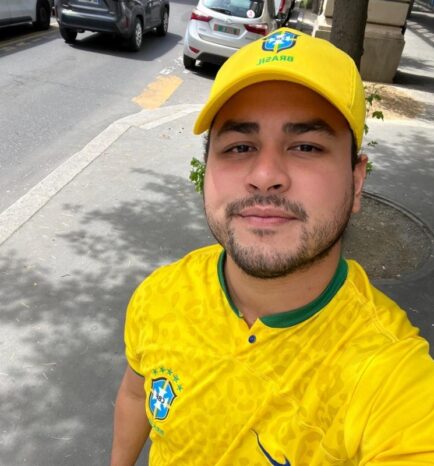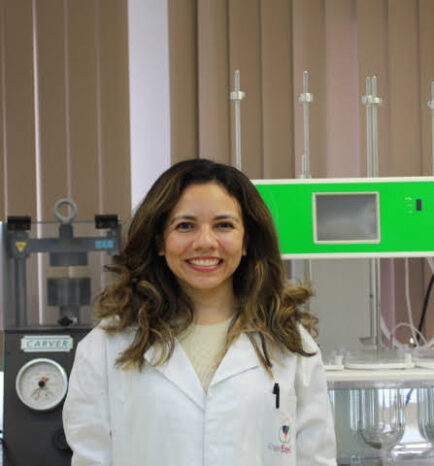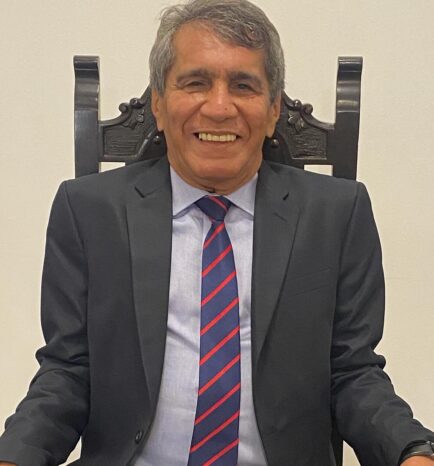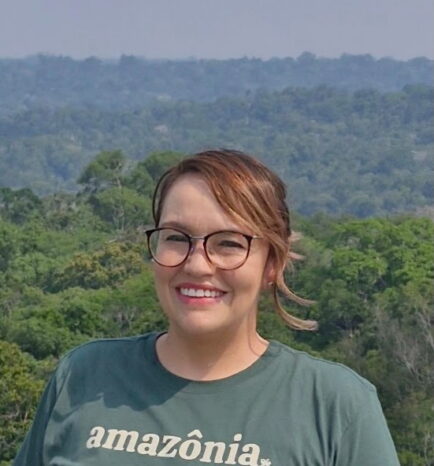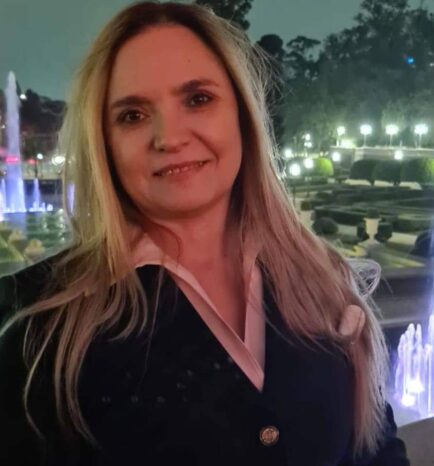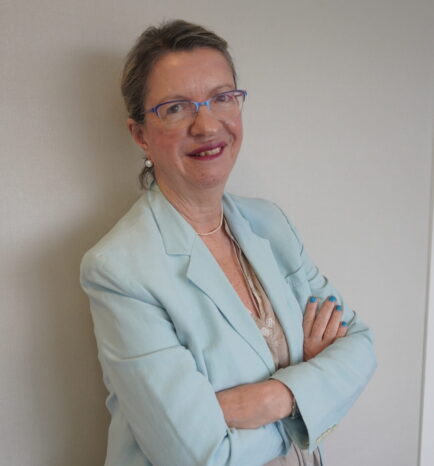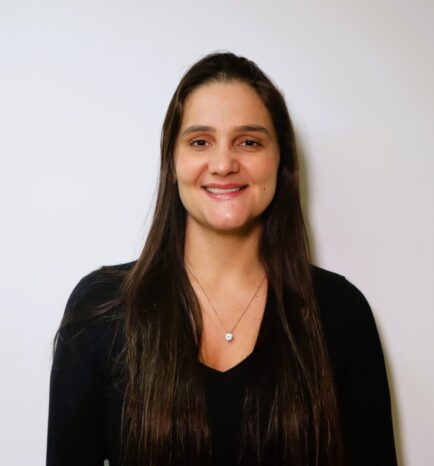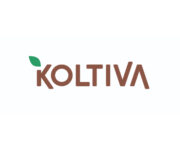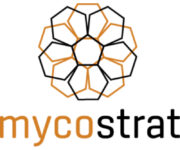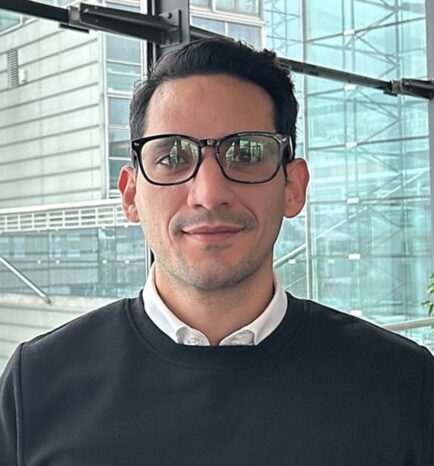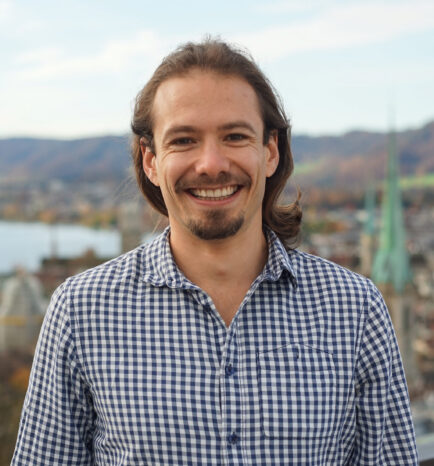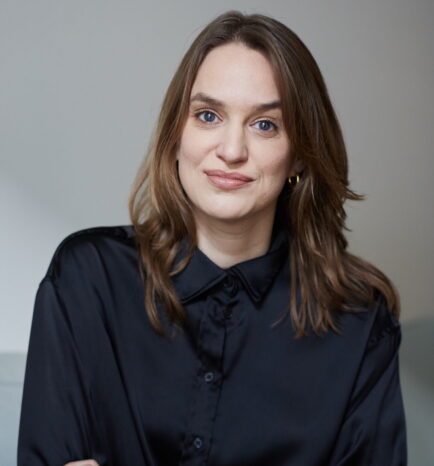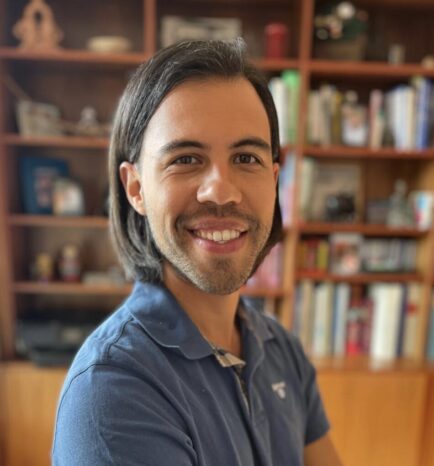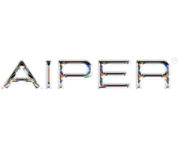
AIPER
The second edition of nexBio Amazônia will take place in Pará and Amazonas between 21 July and 01 August 2025. It will feature 9 Swiss and 6 Brazilian startups, along with 5 Swiss and 8 Brazilian researchers.
The group will participate in an intensive two-week, hands-on program that includes workshops on product development, culture, local regulations, bioeconomy, and the Amazon region. The agenda also features visits to governmental and research institutions, innovation labs, universities, and corporations, as well as meetings with potential customers and partners. Participants will engage in knowledge exchange with the local community, scientists, mentors, and sector experts.
The second edition of nexBio Amazônia will not only facilitate cross-border collaboration but also laid the groundwork for sustainable innovation tailored to the Amazon’s needs. By bridging Swiss and Brazilian expertise, the program continues to contribute to the development of a resilient and inclusive bioeconomy in the region.
The first edition of the nexBio Workshop took place in November 2023 in Belém, gathering 24 experts from various sectors, including academia, NGOs, startups, government, and the private sector. The event was structured into three discussion blocks aimed at identifying and prioritizing sustainable production chains, challenges, and relevant technologies for the Amazon region. The methodology emphasized the transferability and scalability of solutions, using consensus-building techniques to prioritize six key value chains, and integrating technological, financial, and human resource perspectives. This first edition helped establish a solid foundation for the following phases, ensuring the proposed solutions are viable, scalable, and aligned with The second edition of nexBio Amazônia will take place in two phases: the first in July 2024 in the state of Pará, and the second in Manaus from July 29 to August 2, 2024. Both phases will include workshops, networking sessions, and targeted presentations connecting Brazilian and Swiss startups with investors, researchers, and local stakeholders. The program aims to foster sustainable and innovative solutions for the Amazon bioeconomy, strengthening international partnerships and contributing to the region’s socio-economic development.
The second cocreation nexBio Amazônia workshop was Held on December 11, 2024, at Impact Hub Manaus, the workshop gathered 34 experts from academia, startups, NGOs, government, and the private sector. The workshop aimed to identify and prioritize sustainable Amazonian value chains, related challenges, and technologies. The goal was to define challenges with local stakeholders to provide a platform and catalyst for Swiss and Brazilian technologies to be implemented and adapted locally in a short period through an extensive program.
After the co-creation workshop, the program opened a call prioritizing innovative technologies toward the following topics mentioned by the specialists: Pisciculture, Oils, Biojewelry, Brazil Nuts, Pirarucu and Cupuaçu. After analysing several applications, the startups and researchers taking part in the second edition of nexBio Amazônia were selected, meet them here.
AIPER
Bactolac
BioSpin
Cacauaré Amazônia
Oxus Consultoria
Tekohá Cosméticos Regenerativos
Bio
Daniel Jugend is an Associate Professor at São Paulo State University (UNESP) – Brazil, in the School of Engineering. He obtained his PhD in Production Engineering from the Federal University of São Carlos (UFSCar), Brazil. His current research interests include the circular economy, circular product design, sustainability transitions and circular oriented innovation. He is an associate editor of the journals Technology Analysis & Strategic Management and Gestão & Produção. He is currently one of the leaders of the ‘Innovation in Sustainability’ research group, an official research group of the Faculty of Engineering – UNESP. He has coordinated several research projects, particularly those funded by FAPESP in Brazil.
Bio
Erick Vilhena graduated in Fisheries Engineering (UEAP), master’s degree from the PPG in Aquaculture and Sustainable Development (UFPR – Palotina sector), specialist in Geoprocessing and Georeferencing of Rural Properties (UFRA), Multiprofessional Residency in Sustainable Development of Amazonian Territories (UEAP), currently PhD student of the PPG in Tropical Biodiversity (UNIFAP), where my research is to evaluate the sustainability of fishing in Conservation Units in the Coastal Zone of the State of Amapá. I have experience in creating thematic maps in ArcGis, in residues from tanning exotic fish skins and production of native fish in Brazil.
Bio
Jessica Alves is a chemical engineer graduated from the Universidade do Estado do Amazonas (UEA), with a master’s and a doctorate in Nanotechnology Engineering from the Federal University of Rio de Janeiro (UFRJ). She is currently a postdoctoral researcher at UFRJ, where she develops biocompatible and biodegradable polymers from renewable materials using environmentally friendly synthesis routes. Her research focuses on sustainable polymer chemistry, enzymatic polymerization, and the design of polymeric particles for biomedical applications.
Bio
Prof. Dr.-Ing. Nélio Teixeira Machado is a Professor of Sanitary and Environmental Engineering at the Institute of Technology, Federal University of Pará (UFPA) in Belém, Pará, Brazil. His research focuses on agricultural residues, waste-to-energy technologies, bioenergy, bioeconomy, and circular economy.
Bio
Raizza Miranda is a civil engineer, holds a master’s degree in Operations Research from the Aeronautics Institute of Technology (ITA) and UNIFESP, and is currently a PhD candidate in Science and Technology at ITA. Her current research focuses on the integration of intercultural artificial intelligence and innovation ecosystems in Indigenous and traditional territories. She works on structuring systemic models applied to the bioeconomy, territorial management, and the valorization of ancestral knowledge, with an emphasis on ecological regeneration, food sovereignty, and the self-determination of Indigenous peoples. She is a researcher in the areas of community bioindustrialization and sociobiodiversity innovation networks, collaborating on projects aimed at building regenerative value chains, participatory management, and the protection of sociobiodiversity. She is a member of the scientific committee of the Amazonia 4.0 Institute, contributing to sustainable development strategies rooted in the valorization of traditional knowledge and social innovation.
Bio
Rita de Cássia Lacerda Brambilla Rodrigues is a Ph.D. Professor in the Department of Biotechnology at the School of Engineering of Lorena (EEL), University of São Paulo (USP), where she also serves as Chair of the Graduate Program Committee. With a background in Food Technology (COTUCA/UNICAMP) and a degree in Industrial Chemical Engineering (FAENQUIL/EEL-USP), she holds a master’s in Industrial Biotechnology and a Ph.D. in Biotechnology from USP. She completed postdoctoral research at the USDA Forest Products Laboratory and the University of Wisconsin–Madison. Her work focuses on the development of bioprocesses from agro-industrial residues, especially for the production of xylitol and second-generation ethanol. She also conducts research on lignocellulosic biomass conversion, applied microbiology, and experimental design, while contributing actively to science education through the use of active and agile methodologies.
Bio
Tereza Cristina Carvalho is Associate Professor at the Polytechnic School – University of São Paulo (USP). Guest professor at Université Paris 1 Panthéon-Sorbonne and Antonio Meneghetti College. She coordinates and founded LASSU (Laboratory for Sustainability in IT) and CEDIR-USP (Center for Disposal and Reuse of IT Waste) since 2009. She holds a Ph.D. in Computer Engineering from the Polytechnic School. She is a Sloan Fellow 2002 at MIT, Boston – USA. She has received several awards related to Technological Innovation and Sustainability. She coordinates projects related to the Sustainable Production Chains, Amazon 4.0, Future Internet, Sustainable Infrastructures, and WEEE (Waste Electrical and Electronic Equipment)
Bio
Vanessa Andreola has a degree in Architecture and Urbanism, a Master’s degree, a PhD and is currently a post-doctoral researcher. She works on the development of sustainable materials using plant waste, aiming at Energy Efficiency and Decarbonization of Civil Construction. She is interested in Research and Development, Technological Innovation, Project Management and Structuring and Environmental Impact Assessment.
GainForest
Gaya
Koltiva
Mycostrat
reilo.
Real Naturation
Synature
twenty seconds
Bio
Carlos Enrique Gomez Camacho is a Chemical and Sustainable Processes Engineer (PhD Chen Eng) with extensive experience in process and bioprocess engineering for eco-design. Skilled in product development, feedstock analysis, process optimization, and scale-up across laboratory, pilot, and industrial scales. Currently a scientist at Empa’s Technology and Society Laboratory (TSL), contributing to the bioeconomy and the transition to a more sustainable society through science-based innovation, decision-making, systems analysis, and environmental footprint analysis using Life Cycle Assessment (LCA) of products and services.
Bio
Federico Cammelli is a postdoc in Environmental Policy researching the effectiveness and equity of supply chain policies of zero deforestation commitments and other forest focused supply chain policies. His work focuses on soy and beef in the Brazilian Amazon, cocoa in West Africa and palm oil in Indonesia. He also conducts research on forest degradation and forest fires in the Brazilian Amazon, with a focus on smallholders’ fire management.
Bio
Janina Aufrichtig researches how Indigenous peoples are represented in climate litigation through digital tools. Her study focuses on innovative evidence practices and addresses legal and interdisciplinary challenges—including data protection, AI regulation, and the risks of environmental and social washing. This practice-oriented approach is designed to support impact analysis and the international implementation of sustainability goals.
Bio
Yannick Burkard is currently collaborating as an Independent Researcher on a project at Eawag – the Swiss Federal Institute of Aquatic Science and Technology. The project focuses on developing computer vision algorithms for automated species recognition. He will soon begin a role as a Data Engineer at Wildlife Solutions, where he will continue working on methods to automate the identification and classification of various animal species. These tools can help stakeholders collect large-scale data on wildlife populations, hence supporting ongoing research and contributing to ecosystem preservation and species conservation.
The program was built in collaboration with some of Brazil’s most influential institutions and prepares a path for Swiss and Brazilian technologies to reach the region’s decision-making institutions and local farms. It is aligned with governmental and private sector initiatives and monetary incentives that strive towards a more sustainable circular bioeconomy.
Pedro Capra
Vincent Neumann
